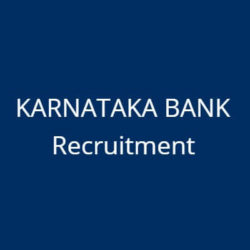
Your Belgian job application: Which language?
Belgium has three official languages – Dutch, French and German – and it’s essential that you write your application in the correct language. Except in the Belgian capital Brussels, most Flemings would not appreciate being addressed in French, or Walloons in Dutch. As a guide, write your CV in the same language as the job advertisement.
If you’re applying for a job in Brussels, and you’re not sure which language to use, check with the company beforehand whether it’s suitable for you to write the application in English or French. If you do write your application in a foreign language, be sure to ask a native speaker to check through your application for grammatical and spelling errors. Below we provide more detail on how to arrange your CV and what to highlight.
Applying for a job in Belgium
You may be asked to apply for a job in Belgium by completing an online application or sending your CV and a cover letter by email or post. The aim of the CV and cover letter is to get yourself through the door and in front of an interviewer. You don’t have to give every last detail in your CV and covering letter but you do need to draw out the skills and experience to show that you are the right person for the job.
When you’re putting them together, bear in mind that Belgian employers pay a lot of attention to experience, motivation, and social skills. Don’t enclose educational certificates, as you’ll take these along to the interview. Some employers may request a photograph, otherwise, there is no obligation to provide one. If you do, choose a professional-looking headshot with an appropriate background. You can also get your CV checked by TopCV who will help you on your way to finding that perfect job.
Writing a Belgian-style CV
Make sure you write the CV in the correct language: Flemish for companies in Flanders (in the north), French for companies in Wallonia (in the south) and French or English for companies in Brussels, depending on what is specified in the job advertisement.
The usual style is reverse chronological order, that is, the most recent first. Belgian CVs tend to be relatively detailed but recent trends are moving towards using just one or two sides of A4 for major companies, although longer is still fine for smaller, local companies. Keep it factual, accurate and professional looking, and use good quality paper – or a letterhead – if printed.
Arrange your CV in the following order, providing as much precise, detail as possible:
- Personal details – name, address, date of birth, telephone number (with international dialing code if appropriate), email address and nationality (marital status optional). It might be useful to mention marital status if it will aid in the process of getting a Belgian work permit, for example, if you’re a non-European national married to a Belgian citizen.
- Work experience – list company names, the positions you held and key responsibilities as bullet points; it’s important to highlight experience and skills particularly relevant to the job you’re applying for. Work experience is important in Belgium, to be precise in your detail: include start and end dates of each position, plus major projects, major achievements, training courses or technical skills, and how many people you supervised. However, Belgian culture is typically modest and conservative, so only supply brief, vital information so you don’t appear as bragging, even if you were the company’s best salesperson they had ever hired.
- Education – list names of educational institutions, dates, course title and grades but only include those educational qualifications that relate to the position for which you’re applying. If this is your first job since qualifying, then ‘education’ should come above ‘work’.
- Language – if you have language skills, then include full details of these, including the level (fluent, intermediate, beginner) and any course or language certificate you have completed.
- Personal information – Belgians are interested in extra-curricular activities, so do include details of these on your CV, particularly if you are a university graduate with little work experience. You might include any courses taken, voluntary work, hobbies or recreational activities; if you played an important role, such as manager of a group, or had any other achievements, for example, a music certificate, list these to highlight certain skills you might have obtained, such as discipline or leadership skills.
- Reference: add names of any references that you have notified.
The Flanders government job site provides examples of a Belgian-CV and cover letter.
Writing a Belgian-style covering letter
If you’re applying for a job in the French region you may be asked to write your cover letter by hand, otherwise, typically it should be typed. If it’s the Flemish part of the country, then always type it. Make sure it’s in the correct language. Don’t go into too much detail – that’s what your CV is for. Keep it short and to the point, stating the job title and setting out why you are the most suitable person for the job.
The outcome of your application
Belgian employers do not always reply to job applications, particularly if you sent a speculative application. If you don’t hear anything about your job application within four weeks, you may assume your application hasn’t been successful.
Belgian job interviews and the selection procedure
Before the job interview, find out as much as possible about the company and the job you’re applying for. You should know your own CV inside out, prepare answers to questions about your motivations – why you want the job, why you want to work for this particular company – and how your skills and experience make you the best person for the job. Think of a few questions to ask your interviewers at the end of the interview (and not just about the salary). Don’t brag – Belgians are typically modest, and they will be assessing your social interaction skills.
Depending on the job you might be asked to sit psychometric, psychological, intelligence or aptitude tests as part of the interview process.
Don’t forget to take your educational certificates along with you.
Interview tips
- Wear appropriate, smart, clothing – no jeans or trainers.
- Be punctual, and make sure your mobile/cell phone is turned off.
- Greet with a handshake and don’t sit until invited – if a woman enters the room it’s considered courteous for men to rise.
- Use the interviewer’s title, not his or her first name.
- Maintain eye contact (but don’t stare the interviewer out).
- The interview may start with some small talk to put you at your ease but the interview itself will probably be fairly formal.
- Be honest – resist the urge to brag or big up your experience or skills – and self-assured and quietly confident.
- Belgians value compromise and negotiation so try to give specific examples to demonstrate your skill in this area.
- Inter-personal skills are highly rated in Belgium – demonstrate yours in the interview.
- Belgians appreciate common sense, so try to show you have plenty.
- Give examples with clear facts and figures – detail and precision will be appreciated.
- If you’re asked about past business successes and failures trying to give examples that show what you learned from these.
- Keep positive – don’t be negative about yourself or criticize a previous employer. Read More…
- HDFC Future Bankers Recruitment 2024 Latest Private Job Opportunities - 15/04/2024
- The Benefits of Working in Government Legal Jobs - 24/02/2024
- Top Highest Paying Bank Jobs in Hyderabad - 22/02/2024





